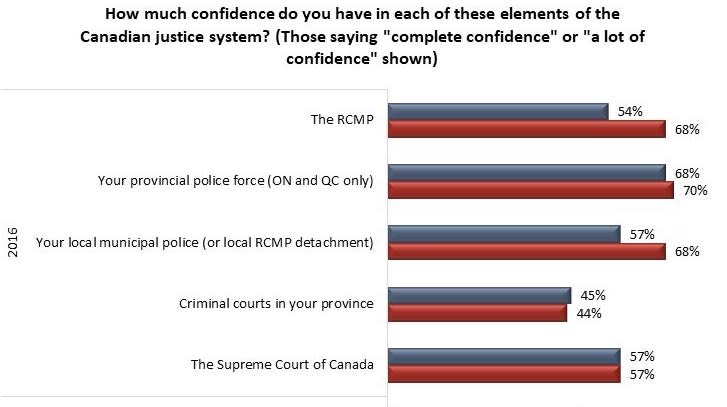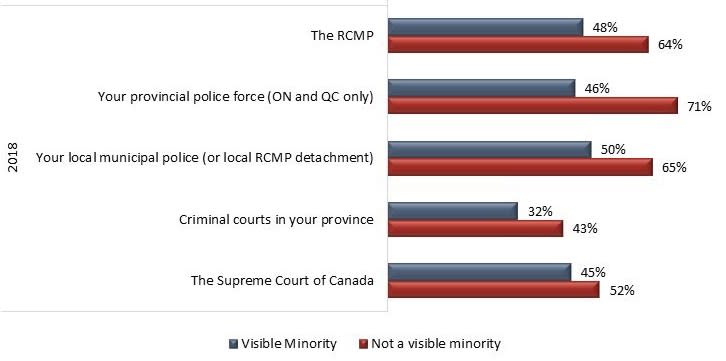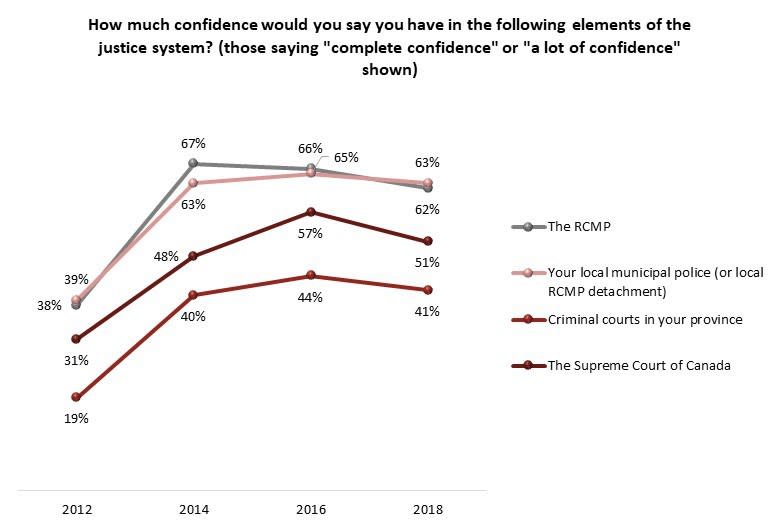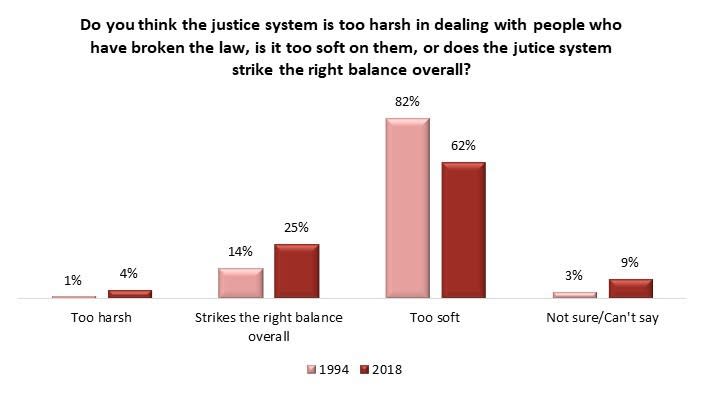Less than half of Canadians have faith in justice system: poll
Following the killing of a young Indigenous man in Saskatchewan, a new poll revealed that less than half of Canadians have faith in the country’s justice system. The fallout from the death of Colten Boushie has continued to be felt across the country after the farmer who shot him was found to be not guilty by a jury.
Polling by Angus Reid shows that 41 per cent of Canadians said they were confident in the Canadian justice system. Among minorities, the number drops even further to 32 per cent. The numbers represent a troubling sign for public faith in a key institution of the country given that the polling was performed before the Boushie verdict came out. It’s likely that per cent trust in the justice system will drop even further.
The gap in trust between minorities and non-minorities had widened over the past two years, according to Angus Reid’s polling. Past data shows that both groups had relatively similar levels of trust in 2016, the last time the institute asked Canadians about the justice system.
In 2016, both groups were equally confident in the Supreme Court, provincial courts and their provincial police force. But gaps emerged when respondents were asked about their local police force and the RCMP. Minorities’ confidence in those two organizations was at least 10 per cent lower than those who didn’t identify as a visible minority.

The new poll results show that the erosion has continued and is marked by an expanding gap between minorities’ and non-minorities’ trust in the system. Less than half of self-identified minorities had confidence in the RCMP when asked in 2018. When it came to provincial police forces, only 46 per cent of minorities said they had confidence in them, a massive drop of more than 20 per cent in just two years.

Part of the drop in support is likely due to the 13 per cent of Canadians polled who said that they had personally been the victim of a crime that involved the police in the past two years. Heightened activism around police issues, much of it brought on by Black Lives Matter activism, has also increased public scrutiny of police practices in Canada’s major cities.
Perhaps even more troubling is the erosion of faith in the courts specifically. While more than half of all respondents approved of the Supreme Court in 2016, faith in the institution dropped by 12 per cent among minorities in 2018. Among non-minorities, a decline, albeit five per cent, was also recorded. The drop was similar for the criminal courts, where confidence in them also dropped by 12 per cent among minorities between 2016 and 2018. Among non-minorities, confidence only dropped one per cent.
Nevertheless, the decline still represents a higher level of public confidence than was registered in 2012 when the institute first polled Canadians on the question. Six years ago, confidence in the RCMP sat at 38 per cent, 39 per cent for local police, 31 per cent for the Supreme Court and 19 per cent for the criminal courts. But, perhaps worryingly, 2018 marks the first time confidence has not risen in any of those institutions.

There may be opposing reasons for why Canada’s justice system has seen a drop in confidence. Among Canadians of a minority background, the jury selection process and verdict of case like the Colten Boushie trial gives way to charges of systemic discrimination. Whether or not that is true is a different question altogether, but it’s hard to deny that Canadian minorities feel that way.
The flip side of that argument is that the justice system is too soft on criminals and tolerates bad behaviour by minorities. A variation of that argument was used by those who defended Gerald Stanley in the Boushie case, pointing out that the Indigenous man and his friends tried to steal Stanley’s ATV before the shooting. However, Canada does not record race-based crime statistics, but studies by the FBI show that crime rates don’t differ drastically across different racial groups.

The poll also shows that 62 per cent of respondents felt that the Canadian justice system was too soft. While the number has declined from 82 per cent in 1994, that’s still nearly two-thirds of Canadians. Meanwhile, a quarter of Canadians said they thought the right balance was struck between being too soft and too harsh. There were also generational divides, with less than half of millennials saying the justice system was too soft, while 71 per cent of those 55 and above said the same.
Regardless of the reasons, the poll results show an increasing distrust of institutions. In a country where the government has a deep influence in the daily lives of citizens, it is a worrying finding for those who head its institutions.



